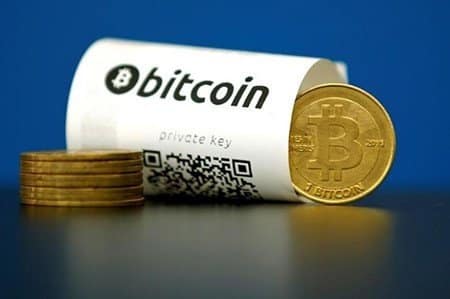SOUTH Korea’s government said on Thursday it plans to ban cryptocurrency trading, sending bitcoin prices plummeting and throwing the virtual coin market into turmoil as the nation’s police and tax authorities raided local exchanges on alleged tax evasion.
The clampdown in South Korea, a crucial source of global demand for cryptocurrency, came as policymakers around the world struggled to regulate an asset whose value has skyrocketed over the last year.
Justice minister Park Sang-ki said the government was preparing a bill to ban trading of the virtual currency on domestic exchanges.
“There are great concerns regarding virtual currencies and the justice ministry is basically preparing a bill to ban cryptocurrency trading through exchanges,” Park told a news conference, according to the ministry’s press office.
After the market’s sharp reaction to the announcement, the nation’s Presidential office hours later said a ban on the country’s virtual coin exchanges had not yet been finalised while it was one of the measures being considered.
A press official at the justice ministry said the proposed ban on cryptocurrency trading was announced after “enough discussion” with other government agencies, including the nation’s finance ministry and financial regulators.
Once a bill is drafted, legislation for an outright ban of virtual coin trading will require a majority vote of the total 297 members of the National Assembly, a process that could take months or even years.
The government’s tough stance triggered a selloff of the cryptocurrency on both local and offshore exchanges.
The local price of bitcoin plunged as much as 21 percent in midday trade to 18.3 million won ($17,064.53) after the minister’s comments. It still trades at around a 30 percent premium compared to other countries.
Bitcoin BTC=BTSP was down more than 10 percent on the Luxembourg-based Bitstamp at $13,199, after earlier dropping as low as $13,120, its weakest since Jan. 2.
South Korea’s cryptocurrency-related shares were also hammered. Vidente (121800.KQ) and Omnitel (057680.KQ), which are stakeholders of Bithumb, skidded by the daily trading limit of 30 percent each.
Once enforced, South Korea’s ban “will make trading difficult here, but not impossible,” said Mun Chong-hyun, chief analyst at EST Security.
“Keen traders, especially hackers, will find it tough to cash out their gains from virtual coin investments in Korea but they can go overseas, for example Japan,” Mun said.
Park Nok-sun, a cryptocurrency analyst at NH Investment & Securities, said the herd behavior in South Korea’s virtual coin market has raised concerns.
Indeed, bitcoin’s BTC=BTSP 1,500 percent surge last year has stoked huge demand for cryptocurency in South Korea, drawing college students to housewives and sparking worries of a gambling addiction.
“Some officials are pushing for stronger and stronger regulations because they only see more (investors) jumping in, not out,” Park said.
By Thursday afternoon, the Justice Ministry’s announcement had prompted more than 55,000 South Koreans to join a petition asking the presidential Blue House to halt the crackdown on the virtual currency, making the Blue House website intermittently unavailable due to heavy traffic, the website showed.
There are more than a dozen cryptocurrency exchanges in South Korea, according to Korea Blockchain Industry Association.
The proliferation of the virtual currency and the accompanying trading frenzy have raised eyebrows among regulators globally, though many central banks have refrained from supervising cryptocurrencies themselves.










